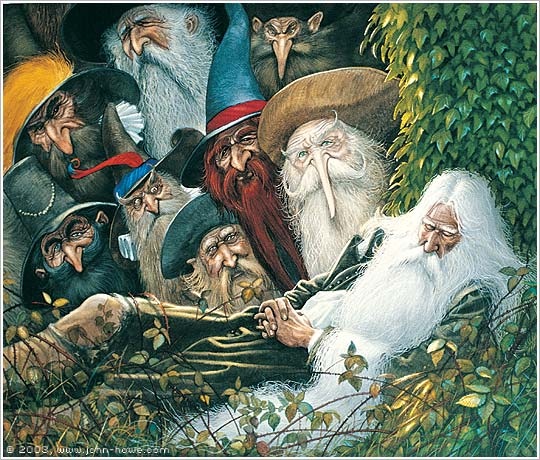
Rip Van Winkle was an amiable, somewhat lazy man. His neighbors – especially the children – loved him. He loved to wander through the woods with his dog and his rifle. A favorite expression of his was, “Today is nice”.
He disliked and avoided gainful labor, for which his wife nagged him incessantly, and not without reason, for his neglect left the family finances, the farm and their lives in disarray.
One day Rip took a walk in the woods, spent some time drinking with a group of men he did not know, and fell into a deep sleep that lasted twenty years.
When he woke up, he found that his beard was a foot long, his gun was rusted away and his dog was missing. Back at the village, he recognizes no one, learns that his wife has died and other friends have either died or moved away.
Rip’s world is really rocked when he proclaims himself as a loyal subject of King George III, which outrages his neighbors. The American Revolutionary War had taken place while he had been asleep, changing the cultural landscape forever.
Rip settles rather quickly back into his normal, amiable and idle daily life, spending his last years in front of Mr. Doolittle’s Hotel, learning about what he had missed during his sleep, and telling stories about his experience. Rumor has it that he preferred to spend his time with the younger generation.
I thought of this story while watching the American National League Football playoffs last weekend. When I left the United States many years ago, I knew the names of the star players, which teams were good and why, which teams would continue their dismal losing streak and why.
Today, after my ‘sleep’ of about three decades, much (if not everything) about tv presentations of American Football has changed:
* many teams have different names
* stadiums have exchanged their romantic names for names of financial institutions – I have no idea where Fed-Ex Field is, or Mercedes-Benz Superdome. Candlestick Park (San Francisco) and Lambeau Field (Green Bay, Wisconsin) have withstood the temptation and trend to change names (so far).
* the quarterbacks, running backs, tight ends are unknown to me, as are the coaches.
* the players I used to know are now sitting behind the commentator’s desk – grayer, (much) heavier, not funny at all, despite their attempts.
* tv images show yellow and blue lines on the field, as well as downs and yards to go.
* not to mention female reporters in the locker room
Rip Van Winkle is back, and the village has changed – and not just football either! Imagine a crowd listening to presidential candidates debate jumping to its feet in a standing ovation!
Short-story analysis is always a dicey proposition. And yet:
The final irony of Washington Irving’s story could be that, in Rip Van Winkle’s village, twenty years and a revolution later, not much had really changed after all!
And isn’t that the experience of the repatriate?
Everything has changed.
Nothing has changed.
What was the name of that quarterback again?
Contributed by Norman Viss, an expatriate coach who has many years of broad international experience working with people from a wide variety of cultures, including a 10 year span of living in Nigeria, West Africa, and 22 years in the Netherlands. Currently he lives in the Philadelphia, USA and blogs at the Everyday Expat Support Center